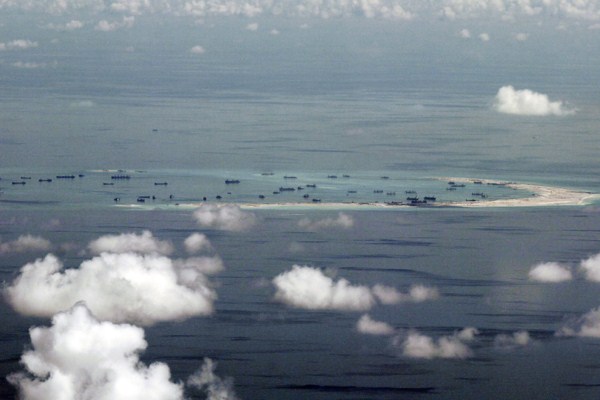Editor's note: This article is part of an ongoing WPR series on the South China Sea territorial disputes and the various claimant countries' approaches to addressing them.
China’s increased pace of island-building in the disputed South China Sea has angered many of its neighbors, but China insists that its land-reclamation activities are no cause for concern. In an email interview, Mira Rapp-Hooper, a fellow with the Asia Program at the Center for Strategic and International Studies, and the director of its Asia Maritime Transparency Initiative, discussed China’s rights under the U.N. Convention on the Law of the Sea.
WPR: What rights do countries have to develop features and outcroppings into artificial islands under the U.N. Convention on the Law of the Sea (UNCLOS), and what maritime rights do these artificial islands then accrue?

